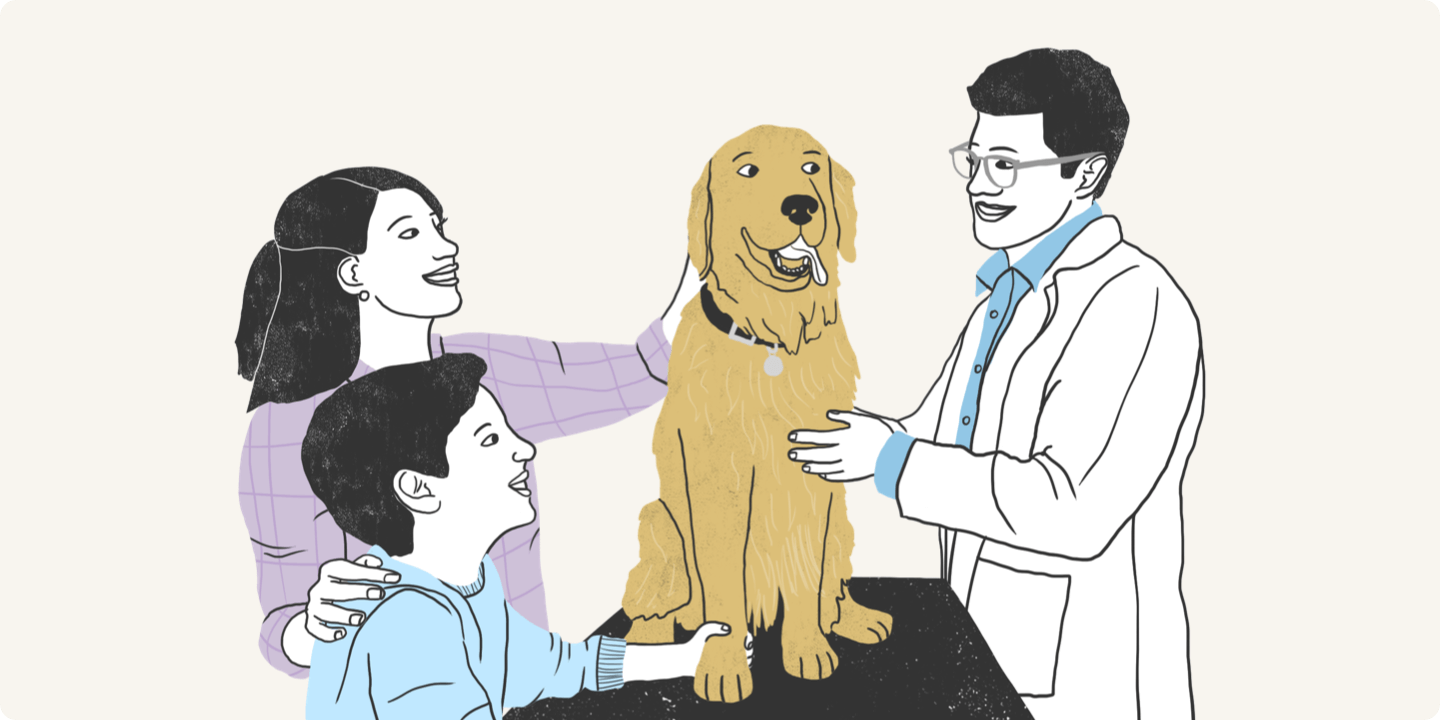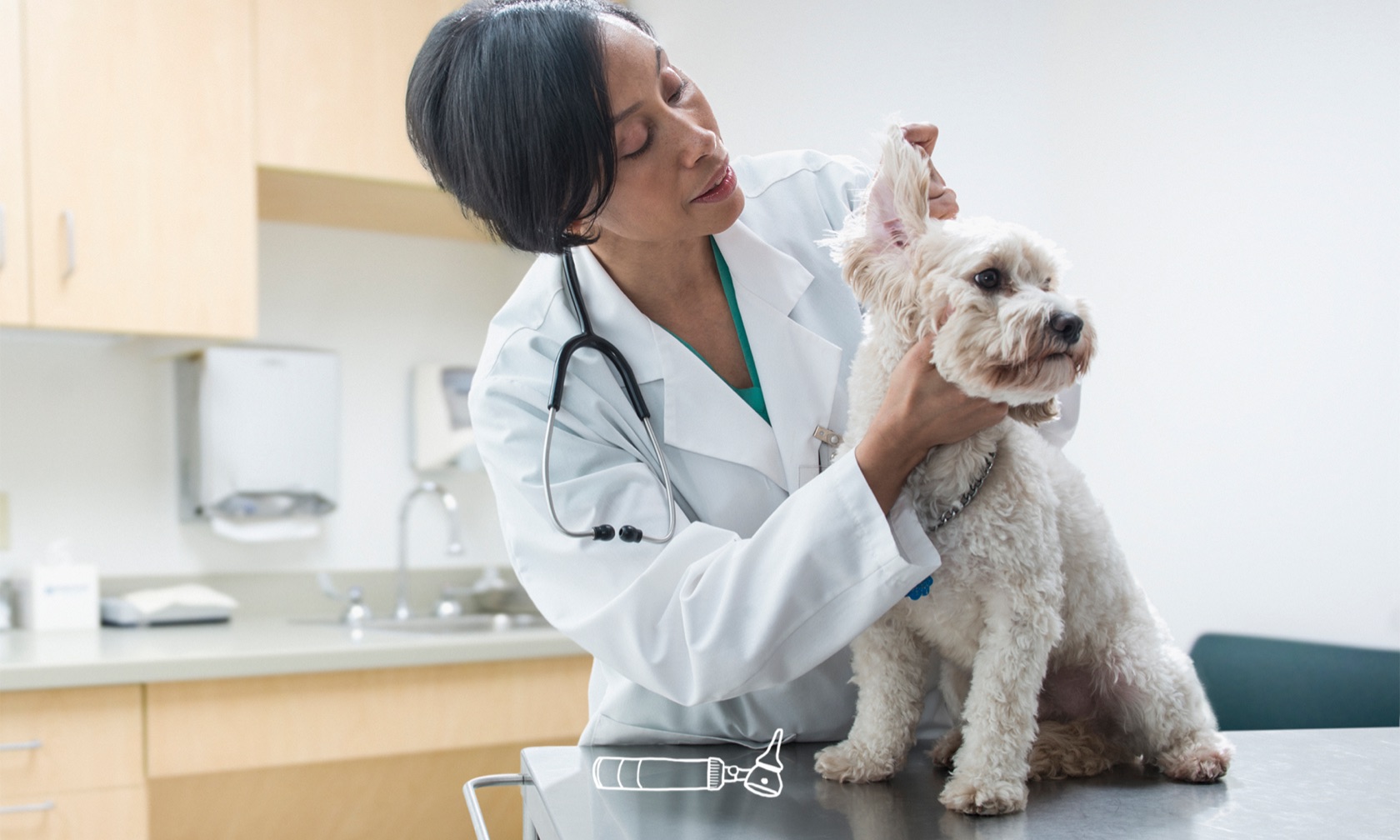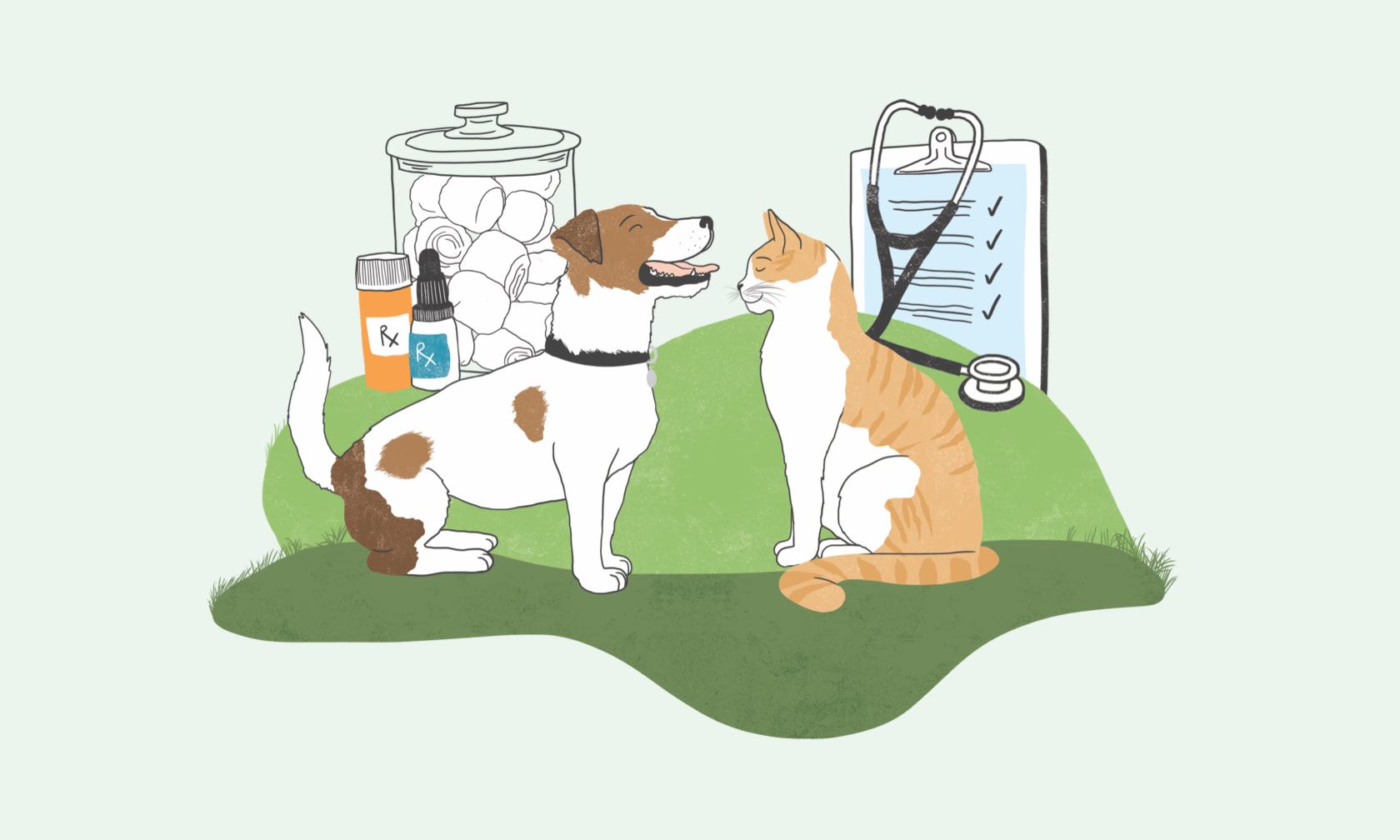You’ve picked up their favorite toys, stocked up only the best pet food, and have pet-proofed your home. You’re clearly ready to bring your pet home, but what happens after that? Hopefully the answer is scheduling your pet’s first veterinarian visit. While the first visit can seem daunting, we’ve rounded up a few of our favorite tips to make the process as smooth as possible.
Set up a Veterinarian Visit Right Away
Even if your pet was checked out by a veterinarian when they were at the shelter — or seems perfectly healthy to you — you’ll still want to make an appointment within the first week or so. Why? Your dog or cat may be due for additional medications to keep them (and you) safe in their new home.
Prepare your questions ahead of time, even if that means writing them down.
Additionally, no one ever expects an emergency to occur—especially in those first happy moments at home—but establishing a relationship with a local vet early on will give you peace of mind if you find yourself in an emergency situation.
Schedule Your Visit Early
It’s best to schedule your veterinarian visit for the morning, when delays are less likely. And arrive a few minutes early so you can help get your pet settled and fill out any paperwork. If your veterinarian offers patient forms online, fill out any paperwork at home, so your visit goes even more smoothly.
Bring All the Proper Items With You
There’s a lot you can do to help your pet’s first veterinarian visit run smoothly and get the most out of your time there.
- Bring your adoption papers from the shelter. This will help your veterinarian get to know your pet’s medical history, and which vaccines they’ve already had, or still need.
- Bring a list of any medications or supplements your pet is on, how often they take them, as well as the food you’re feeding them. If it’s easier, just bring the medications with you to the office. You can then explain what each one is and why your pet needs it.
- Prepare your questions ahead of time, even if that means writing them down.
Tricks of the Trade
Bring Treats
Is there one that your pet really loves? Bring some for your veterinarian and their assistants to give to your pet during the appointment.
Leave the Room
If you’re squeamish around needles, it’s best to leave the room. Your pet might even pick up on your anxiety and get more stressed out themselves.
Celebrate!
Once you’re back at home, do something fun with your pet to help them relax after their visit.

What to Expect for Your Pet’s First Visit to the Veterinarian
At your first appointment, you’ll work together with your veterinarian to gather clues about your pet’s dietary needs, training, and any deeply hidden problems they might have. It’s also a perfect opportunity to discuss topics like pet proofing, training, and parasite protection.
Your veterinarian will thoroughly examine your pet, looking for things like heart murmurs, ear infections or even worms.
ZPC-00183R2



